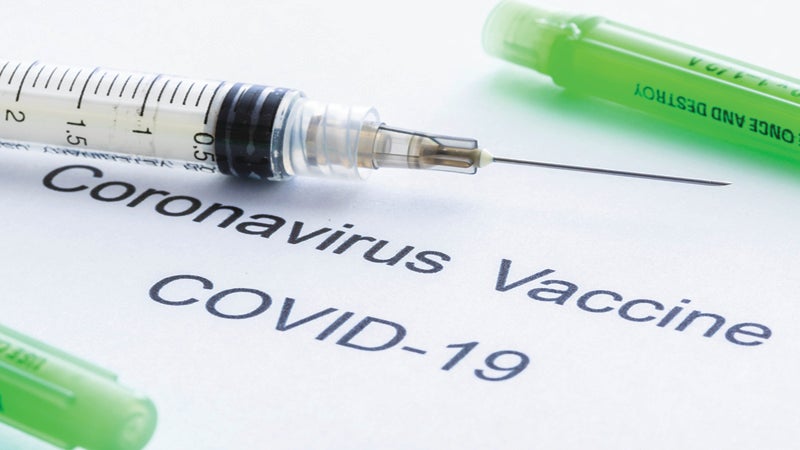Richard: Improving your family’s health is more important than ever
Published 12:43 pm Saturday, August 15, 2020

- Katie RIchard
|
Getting your Trinity Audio player ready...
|
Nearly six months into the pandemic, we find ourselves not in a “new normal” but a “no normal” state.
Aside from three basic ways to shield ourselves from viral droplets— masks, social distancing and hand washing—we can take other steps to improve our family’s immunity against illness.
There’s no quick “boost” to having a strong immune system. It takes time, balance and consistency to fight off infections—whether COVID-19, flu or seasonal colds.
Preventive care, diet and nutrition, exercise, adequate sleep and decreased stress are key to improving your family’s overall health.
Get Vaccinated
Early during the pandemic, experts believed patients could not test positive for both the flu and COVID-19. Now we know it is possible to have both together, so getting a flu vaccine is crucial.
The Centers for Disease Control and Prevention (CDC) recommends standard flu vaccinations for everyone six months and older and high dose shots for ages 65 and older. The ideal time for flu vaccinations is September and October. To further protect children, ensure all their vaccines are up to date.
Eat Healthy
Healthy eating habits help defend against inflammation. Diets that consistently include plenty of fresh fruits and green, leafy vegetables can keep us healthier.
Foods such as arugula, beets, garlic, kale, nuts and seeds help boost nitric oxide levels to promote proper blood flow through the body. Some iron-rich vegetables can be harder to digest, so offset any digestive problems with plenty of vitamin C-rich foods such as broccoli, Brussel sprouts, bell peppers, sweet potatoes and tomatoes.
Anti-inflammatory foods also promote overall skin health. Foods rich in antioxidants such as salmon, grass-fed meats, avocados, olive oil, walnuts, berries, ginger, turmeric and even dark chocolate can slow cell damage. Avoid processed foods, refined carbohydrates and sugar.
National Institutes of Health (NIH) studies show diet impacts children’s learning and behavior. Serve them a breakfast of whole grains, high fiber and protein-rich foods rather than sugary cereals and processed foods. Vary lunch options with turkey and cheese rollups, fruit, yogurt, hummus and pita bread, quesadillas and plenty of water.
Get Moving
We must keep moving to improve our immune systems. The harder the heart pumps, the more blood it circulates to the muscles and more white cells it sends throughout the body to fight infection.
The American Heart Association recommends 2.5 hours per week of moderate exercise or 75 minutes of intense activity a week. Make exercise a family activity by taking walks, riding bikes, shooting hoops or kicking the soccer ball around together.
Sleep More, Stress Less
Many of us have coronavirus insomnia while worrying about sickness, loss of work and paying bills. Unfortunately, lack of sleep and stress suppress our immune systems. An average of seven hours a night for adults and nine to 12 hours for children, depending on age, is vital for immune systems.
Practice mindfulness to help relieve stress. Focus on breathing slowly and deeply. There are numerous meditation and yoga apps to help us relax.
Studies show that sleep enhances white blood cell response to help fight infection. If having trouble sleeping, try making the room cooler and diffuse some lavender essential oil. Listen to a mindful meditation or calming music or read a book until dozing off. If awaking during the night, get up and walk around the house. But do not grab a phone to read emails or social media.
Children naturally respond to what’s going on around them, so they may not be sleeping restfully. Give younger children warm baths just bedtime and read to them as they fall asleep. Encourage older kids to read an actual book, not an electronic device.
We’re Here For You
Thibodaux Regional Health System has continued to be an innovator, early adopter, educator and effective communicator to help you navigate the COVID-19 pandemic, and you can be confident in our commitment to the safety and well-being of patients, staff and the community. As we continue to move forward, know that you will receive the high quality compassionate care that you have come to trust.
Katie Richard, MA, BSN, RN, is education and training coordinator for Thibodaux Regional Health System. To contact her or get more information on COVID-19, call 985.493.4765 or visit www.thibodaux.com.





